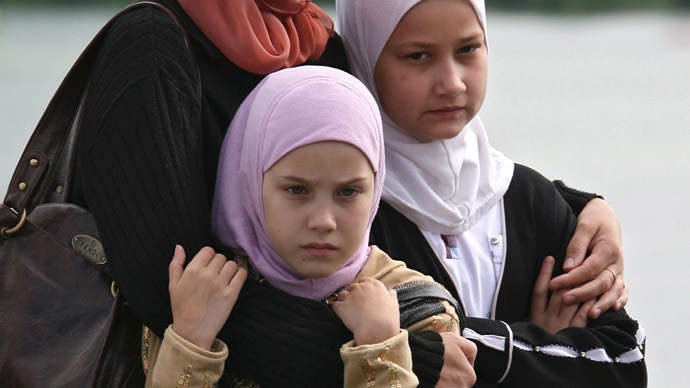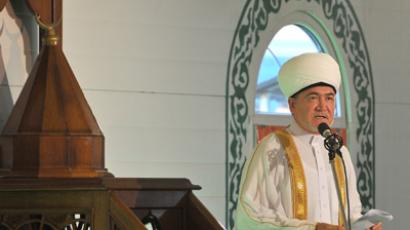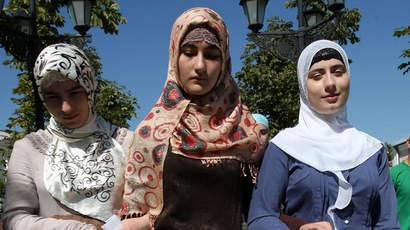Veiled threats? Children’s hijab show canceled, Cossacks blamed

A Fashion Week event in the southern Russian city of Rostov was canceled, allegedly after local Cossack leaders criticized the planned show of hijabs for small girls.
Local news websites report that the organizers of the Fashion Week event complained about the threats from Cossacks. According to them, one of the letters suggested that the fashion show with hijab-clad small girls would look more appropriate in some other region of the Russian Federation, for example, the predominantly-Muslim Chechnya.
Cossacks also questioned plans to use ethnic Russian models for the hijab show, but the organizers of the event claimed that this was a strict requirement of fashion designers.
However, the head of the international relations department of the Rostov Cossack Host, Timur Okkert, told reporters that in letters to showmen his comrades had noted that the ethnic situation in the region was complicated enough and such shows could only provoke conflicts.
In addition, Okkert said that his host had contacted numerous officials who were mentioned in press releases as Fashion Week guests and it turned out that they were completely unaware of their planned participation.
“This suggests that the show hosts either could not organize it properly, or have not even tried,” the Cossack activist noted.
Rostov-on-Don is the largest city of the Southern Federal District with population over 1 million. It is close to, but not bordering, the republics of the North Caucasus. The population in the city and in the Rostov Region is multi-ethnic and multi-confessional and the local authorities spare a great deal of effort to prevent conflicts.
In July this year Russia’s Supreme Court banned the use of hijab and other Muslim headwear in schools, following a complaint from the South Russia’s Stavropol Region. Several months earlier, the regional administration ordered all schoolchildren to appear in classes only in regular secular clothes.
Local Muslims turned to the courts claiming that the regulation was infringing their freedom of faith as certain denominations of Islam requires that all women wear special headscarves called hijabs, covering their hair and necks.
The regional court ruled not to fulfill the claim as, according
to the judges, school regulations concerning dress did not
prevent Muslims from believing in God and were therefore not
infringing anyone’s rights. The Supreme Court also took the side
of the Stavropol administration and rejected the appeal.














